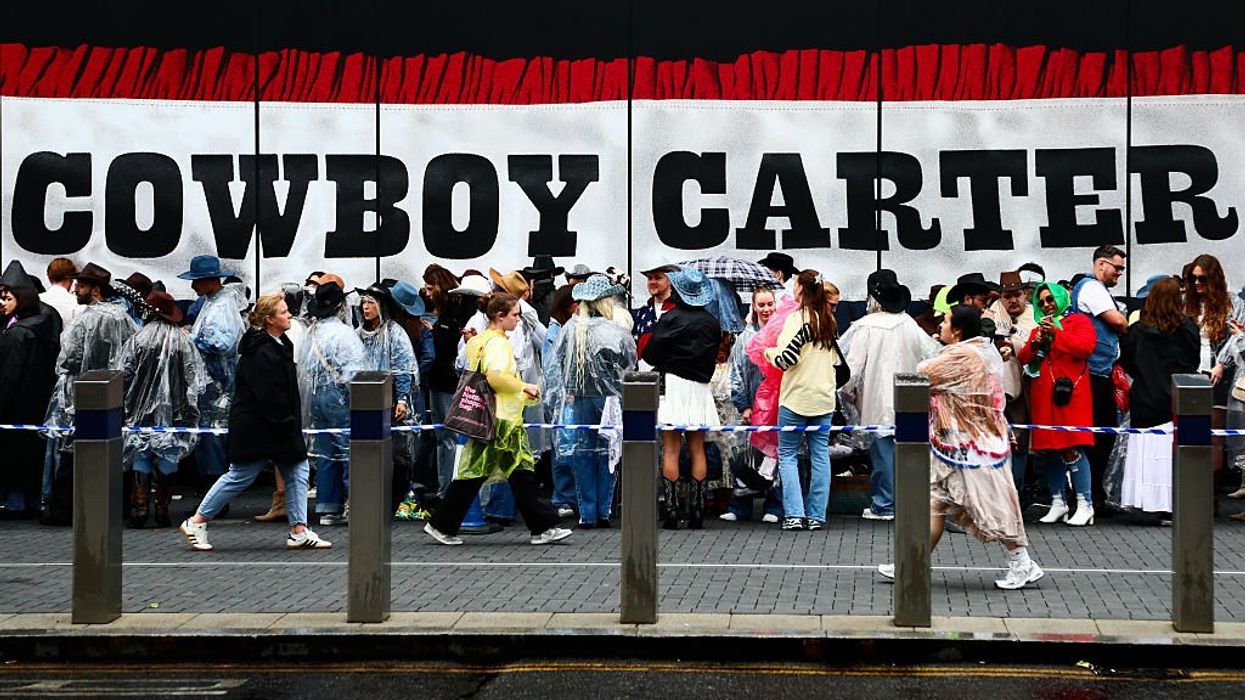When you walk out of a Beyoncé show, especially one like the record-breaking July 14 run in Atlanta, you don't just leave with a T-shirt and some grainy iPhone or Android footage for Instagram. You emerged from a three-hour-plus experience awe-inspired and different. And if you're paying attention, you realize you've just witnessed one of the realist, most radical forms of democratic resistance we have in American pop culture.
My wife and I have attended plenty of sports and entertainment events, from Broadway to the Super Bowl in Vegas. But nothing comes close to the communal, transformative energy that filled the Mercedes-Benz Stadium when Beyoncé took the stage. Cowboy Carter wasn't just another concert. It was a cultural event, a political rally, a spiritual experience, and a masterclass in creative sovereignty, all rolled into one.
The Cowboy Carter tour is the work of a mastermind. Beyoncé doesn't just perform. She constructs worlds. The stage was less a platform than a living, breathing canvas—part Afro-futurist utopia, part Southern Black church, part underground ballroom, all seamlessly woven together with the kind of precision and intentionality most directors can only dream about. Every visual, every transition, every note was a nod to Black artistic traditions, reimagined for a new era.
She moved through her catalogue with the sort of athletic dominance you see in the GOATs—MJ, Serena, Simone Biles. But what set this performance apart was how she bent the arena to her will. The transitions weren't just musical; they were narrative. Each song, each costume change, was another chapter in the ongoing story of Black resistance, Black joy, and Black love.
We live in a time when many celebrities dip a toe into activism, drop a hashtag, and call it a day. Beyoncé, though, doesn't just make statements—she builds worlds where those statements come alive and are inherently political. From the start, with "American Requiem," she establishes the tone for not just herself but for everyone in the building. And when she sang "Ya Ya," it wasn't just a club banger—it felt like a generational call to arms. You could see it in the faces of the women of color dancing in the aisles, the LGBTQ+ fans who found sanctuary in the ballroom vignettes, and the parents holding their daughters a little tighter during "Protector." The message landed: This country might try to break us, but we're still here. Still dancing and still loving ourselves.
I've been around long enough to know the difference between a moment and a movement. What Beyoncé did in Atlanta, across the U.S., England, and France was both. Her entire career has been a case study in how women of color, particularly Black women, shape, define, and sustain American culture—often without getting their due.
The Cowboy Carter tour wasn't just the thousands of fans, or the celebrities in the VIP section, or the TikTokers live-streaming every second. It was the sense that, for one night, Atlanta and every city visited was the center of the universe. Beyoncé made sure of it by honoring the host cities—its music, its politics, and its role as a hub for beautifully diverse brilliance and resistance. She contextualized the event, inviting relevant legends and making stadiums feel like the world's biggest family reunion.
But the proper flex? She made inclusion the main event. Ballroom culture, again, wasn't a sideshow. Black Southernness wasn't background—it was foreground. In a country still obsessed with erasing, ignoring, or co-opting Black culture, Beyoncé made it impossible to look away. She forced the mainstream to meet her, not the other way around.
I think it's important to note that Beyoncé’s tour isn't just about music. Instead, it just might be a suggestive blueprint for the next wave of democratic resistance. Cowboy Carter, from my perspective, is about agency. It's about the right to take up space, to demand more, and to refuse to shrink. The concert felt like it provided insight into the potential of untapped collective power.
She didn't preach, yet she didn't have to. Resistance was embodied in the choreography, poignantly seen throughout set designs, and in the unapologetic Blackness of it all. Beyoncé presented us with how freedom looks, how it moves, how it sounds. And she did it while staying in complete control of her narrative—a feat that's as rare in pop culture as it is in politics.
Personally, walking out into the Atlanta summer night, we could feel the aftershocks rippling through the city. People weren't just buzzing about the show; they were talking about what it meant. For Black and brown people, it was validation. For queer fans, it was a safe haven. For everyone else, it was a reminder—Black women are the architects of cool, the custodians of truth, the keepers of the flame.
Beyoncé's creative genius, her political sharpness, her cultural gravity—they're not just entertainment. They're a roadmap. Outlining a way to resist, build, and love ourselves when the world tells us not to do so. You can call it pop culture if you want. But make no mistake—what happened on the Cowboy Carter tour was democracy in motion, resistance in real time, and a reminder that the most radical thing you can do in America is demand joy and justice, all at once.
Rev. Dr. F. Willis Johnson is a spiritual entrepreneur, author, scholar-practioner whose leadership and strategies around social and racial justice issues are nationally recognized and applied.




















Trump & Hegseth gave Mark Kelly a huge 2028 gift